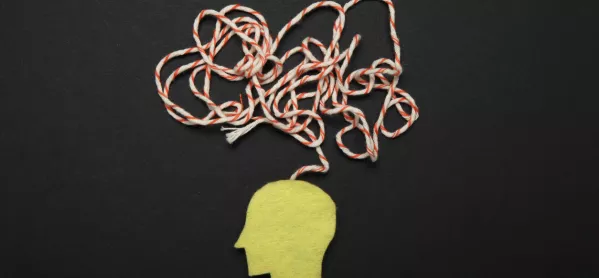“I remember a child who had a battery in his pocket, which he assumed was heavier than everything else,” says early years mathematics expert Dr Sue Gifford.
“So when you put it in a weighing scales with a big stone, and the big stone went down and his battery was up, he would maintain that higher was heavier, because his battery was always heavier than anything else.
So you had to give him something that he really acknowledged was heavier than his battery, in order for him to change his idea and realise that actually the lower balance scale was the heavier one.”
She chuckles at the memory.
In the latest Tes Mathematips podcast we discuss the idea of cognitive conflict and of restructuring: confronting, reconsidering and changing ideas in the light of new information or contradiction - something that seems particularly pertinent in today’s post-truth, digital-bubble-of-entrenchment era.
“Often people think of maths as being right and wrong,” she continues, “but really we have to say with maths ‘It’s OK to change your mind, that’s what you do’”.
But how can we encourage pupils to do that without being tied to their original thoughts?
Story contexts, says Sue, as well as characters, and making deliberate mistakes. In other words, do it in a playful way.
Quick read: 5 ways to be a more responsive teacher
Quick listen: How to give your pupils a deeper understanding of maths
Want to know more? Should Minority Report technology be used in schools?
“You put the child in the power position, for example to sort out the muddle that the teddy is in,” she says.
“They know it’s a playful scenario; even if teddy is right and they are wrong, they’re not losing face.”
Sue was until recently principal lecturer in mathematics education at the University of Roehampton, chair of BSRLM and early years adviser for both NCETM and NRICH.
“Explaining doesn’t always get people to change their mind,” she says. “Sometimes you have to show them.”
She makes the case for manipulatives and multiple representations - for example, most children (and adults!) think long, tall containers can hold more than short, fat ones. (And that’s why, she says, we are still sold bottles of wine and perfume in long tall containers).
You can tell them until you’re blue in the face - but if you let them play and discuss ideas, they will understand it in a much more powerful way.
Conflict, not argument
How can we engender conflict, I ask, without it turning into an argument? You need ground rules of respecting everyone’s opinion, she says, and strategies of ‘assigning competence’ - saying to pupils ‘I understand why you might think that’ or ‘that’s a reasonable thing to say’, even if it isn’t right.
Restructuring is not just slightly changing one’s world view or preconception to fit a new experience in (this is accommodation)- but actually turning it on its head, having to significantly rethink somehow. Why is it important in the maths classroom at any age? Depth, says Sue.
It’s an active and creative process, something that implies deep thought and engenders connections and fluency.
“If you’ve got very limited connections then you can’t apply them to a range of contexts, you can’t make lots of connections and you haven’t got fluency. It’s about deepening understanding.”
Predicting and considering how you will respond to these student misconceptions is a key part of good maths teaching, she says.
“You move from being delighted when they get it right to more excited when they show a misconception - it becomes an interesting challenge, an opportunity for restructuring.”
Listen to the episode for all this plus arrays, number jokes, mathematical free writing, Sue’s ideas about carnival maths, the need for empathy in maths teaching and mysterious little characters going camping.
Sue mentions:
1. Jean Piaget
2. Cognitive conflict
3. Japanese lesson study
4. Madeline Goutard
5. Arrays
6. The NCETM early years resources
Lucy mentions:
1. Sue’s 2004 paper ‘A new mathematics pedagogy for the early years: in search of principles for practice’
2. Malcolm Swan’s work on cognitive conflict in mathematics
3. Embedded schemas



